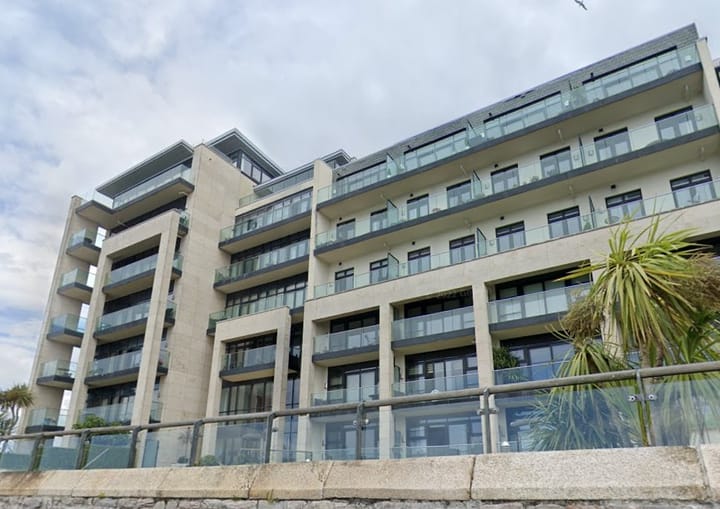Remembering the Great Gale: 200 years ago a storm wrecked Plymouth's new breakwater

November sees the 200th anniversary of one of the biggest storms to pound Plymouth Sound and devastate the city’s coastal communities.
The Great Gale of November 22nd and 23rd, 1824 caused significant damage to the city, including:
- Sinking vessels: 22 ships sank in Plymouth
- Breakwater damage: The storm destroyed over 200,000 tons of stone from the city's new breakwater
- Storm surge: The storm surge was 3–4 meters high and swept away buildings.
It was caused by a rare combination of factors. Hurricane force winds of over 100mph, ‘Spring’ high tides, extreme low pressure and towering waves combined to create unprecedented conditions for the storm. Its severity was so extreme it is estimated to have only a 1 in 10,000 chance of recurring each year.
- The foundation stone for Plymouth’s breakwater was laid on Shovel Rock on 8 August 1812. It followed a line over Panther Rock, Shovel and St. Carlos Rocks, and was sufficiently completed by 1814 to shelter ships of the line. Napoleon was reported as commenting that the breakwater was a “grand thing”. The severe storm damage in 1824 prompted a change in its profile and height.
Despite the damage caused in Plymouth, the city got off lightly compared to towns further along the coast, particularly Dorset.
It destroyed the esplanade at Weymouth; it broke across Chesil Beach and the Fleet Lagoon, almost destroying the villages of Fleet and Chiswell. Many buildings in Melcombe Regis were destroyed. In Lyme Regis it topped the Cobb, and destroyed about 90m of its length. And at Sidmouth, low-lying houses along the Esplanade were inundated, and cottages at the exposed west end were destroyed. The 40 feet (12 m) sea-stack at Chit Rock was destroyed.
As part of the bicentenary commemorations, the Environment Agency has worked with Dorset Coast Forum and BCP Council to bring together a free public exhibition to explore the impacts the Great Gale left on the Dorset Coast.
For more information, including dates and venues, visit the Dorset Coast Forum website.
The Environment Agency has made a short film about the anniversary: watch it here
- The Environment Agency is investing to better protect people from flooding and extreme weather. The £200m Flood and Coastal Innovation Programmes is working in partnership with local authorities nationwide to develop, test and implement innovative ways of improving resilience and adapting to the impacts of flooding, coastal erosion and climate change.




Comments ()